The Grateful Dead were already established as paragons of the free-form, improvisational San Francisco psychedelic sound when they abruptly shifted gears for the acoustic Workingman's Dead, a lovely exploration of American roots music illuminating the group's country, blues, and folk influences. The lilting "Uncle John's Band," their first radio hit, opens the record and perfectly summarizes its subtle, spare beauty; complete with a new focus on more concise songs and tighter arrangements, the approach works brilliantly. Despite its sharp contrast to the epic live space jams on which the group's legend primarily rests, Workingman's Dead nonetheless spotlights the Dead at their most engaging, stripped of all excess to reveal the true essence of their craft.
(by Jason Ankeny , All Music Guide)
A radical and completely unexpected change in style - once and for all, the Dead suddenly cut short all the attempts to annihilate the differences between their live and studio sound and go off pursuing a more laid-back, mainstreamish country-rock direction. General musical philosophy usually ascribes this change of the Dead's musical philosophy to the passing of an era: the Altamont Massacre (which, by the way, was an event that had a deep impact on the band indeed - 'New Speedway Boogie' is sometimes said to be dedicated to the event) and the fade-away of the hippie ideology made them leave all their psycho jams for the live shows and concentrate on more concise, rational work in the studio.
That said, Workingman's Dead certainly doesn't deserve the 'classic' status so readily appended on it by most musical critics. It's a fairly good and enjoyable record, for sure, but by all objective means, there ain't that much special about it. The eight tracks on here more or less exploit the same two or three vibes (slow rambling acoustic country shuffle; mid-tempo mellow acoustic country boogie; mid- or fast-tempo soft electric country rocker), and the melodies aren't all that outstanding, either. And still, after repeated listens, I find myself liking this stuff much more than I really should, even considering my general subjective musical tastes which certainly aren't all that tolerant towards this kind of music.
In the end, I suppose this is due not to some kind of hidden magic (actually, I never believe in 'hidden magic' - leave that crap for Trout Mask Replica lovers), but rather to a number of small details, each of which is not too significant on its own, but taken altogether they make the record really work. There's Garcia's soulful, gentle, emotional voice that's very inviting. There's the lyrics, more often interesting and intriguing than not (by the way, the absolute majority of songs on here were penned by the Garcia-Hunter team). There's the fact that the melodies, while not being exceedingly catchy, are almost always a wee bit untrivial - it looks like the Dead were taking generic patterns and always taking care to make a few twists here and there so that they wouldn't turn out generic in the end, thus not only making the album sound more surprising, but also more personal. There's the sparse, economic instrumentation which always allows the listener to concentrate on one or two instruments (very well placed in the mix) and enjoy the fullness of their sound instead of just having to swallow the whole 'package' like some tasteless medicine. And finally, there's the playing, particularly Jerry's tasteful slide work.
I mean, sure, one could always object and say that Garcia's voice can get monotonous, the lyrics don't mean a lot, the melodies are unmemorable, the sparse instrumentation isn't varying all that much, and there were tons of more professional musicians whose slide work was far more tasteful than Garcia's. But like I said, it's the combination of all this that matters; simply put, this is one of the most carefully crafted roots rock records that I've ever heard, and the most amazing thing is, even with all that immaculate craftsmanship, it still does not sound slick and lifeless, like some generic sterile country recording.
Well, I suppose I just put all that lengthy analysis because I couldn't say all that much about the actual songs, could I? More or less so. Okay, first of all, despite all the praise, I could still easily live without the two slow acoustic shuffles, each on one side ('High Time' and 'Black Peter', two excellent cures for insomnia, although nowhere near as appalling as 'Attics Of My Life' on the next record). I'm also not terribly impressed by the album opener, 'Uncle John's Band', even it does have a nice, intimate vibe about it and went on to become one of the band's stage favourites.
But the rest is good. The faster songs boogie along and make you tap your foot and revel in their subtle malevolence, particularly 'New Speedway Boogie' which is quite malevolent indeed; and the guitar interplay on 'Cumberland Blues' really gets me going as well. 'Easy Wind' overdoes the chaotic jamming section at the end a bit, but at least it's not that chaotic jamming that we usually associate with the Dead; otherwise, it's another good mid-tempo rocker. But the real highlights of the album are, without a doubt, 'Dire Wolf' and 'Casey Jones'. 'Dire Wolf', in fact, gives me the creeps - it's structured as a pleasant, laid-back soft country rocker with homely slide guitar homely sliding in the background, but the chorus? 'Don't murder me, I beg you, you don't murder me, please don't murder me', sung in Garcia's nicest tone ever. Woof, pretty scary, and a worthy predecessor to the even more grappling 'Friend Of The Devil' on American Beauty. And 'Casey Jones'? It tells the story of an engineer who's driving a train "under intoxication" and gets into a lethal accident, but that would be hard to guess from the playful, 'lightweight' melody (the catchiest refrain on the album, for sure). Imagine that.
Of course, their next album would seriously build on this foundation, with the Dead somewhat expanding their territory and drawing on more styles and moods, so anybody looking for this band's "studio wonders" should first look up American Beauty. But no fans of American Beauty will ever be disappointed in Workingman's Dead, that's for sure.
(by George Starostin, Only Solitaire)
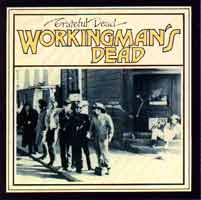
 Inselplatte #6 in Jahresliste
Inselplatte #6 in Jahresliste  Plattentipp
Plattentipp  Countryrock-Klassiker! (Uncut, Mai 2008)
Countryrock-Klassiker! (Uncut, Mai 2008) 








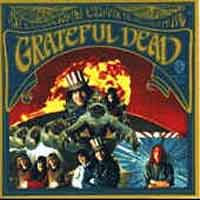
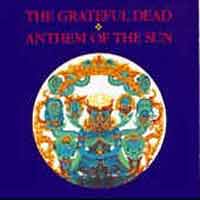
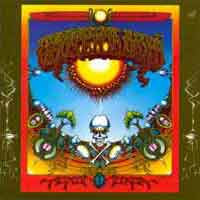
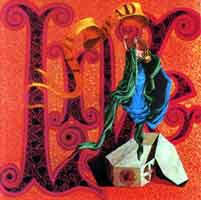
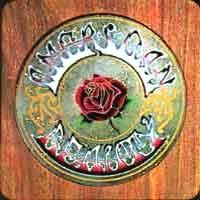
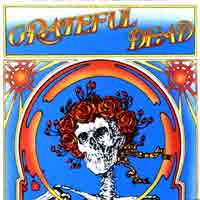
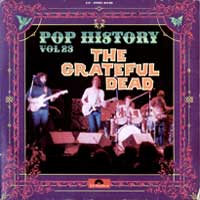

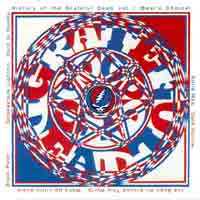
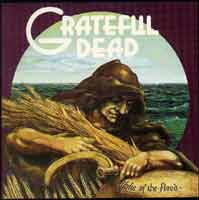
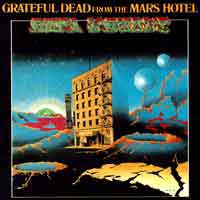
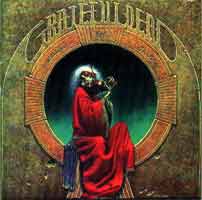
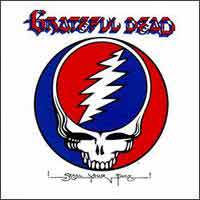
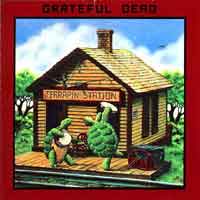
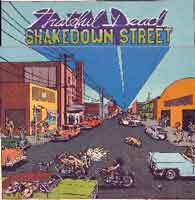
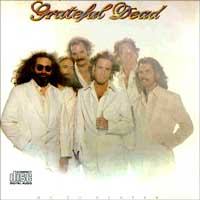
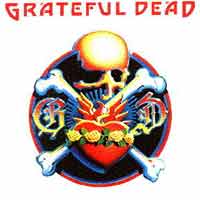
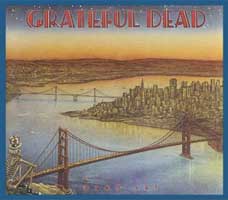
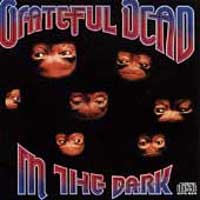
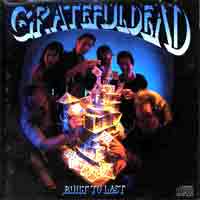
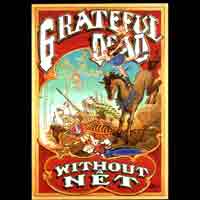
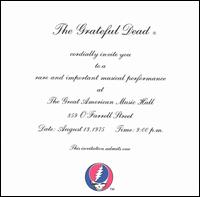
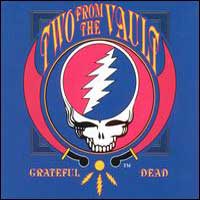
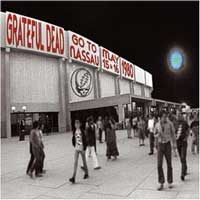
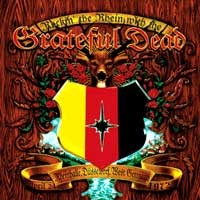
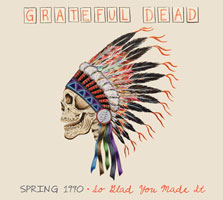

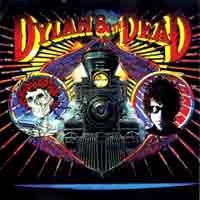
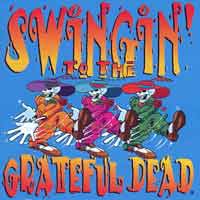


 #371 Virgin/Colin Larkin(2000)
#371 Virgin/Colin Larkin(2000)

 Grateful Dead
Grateful Dead 